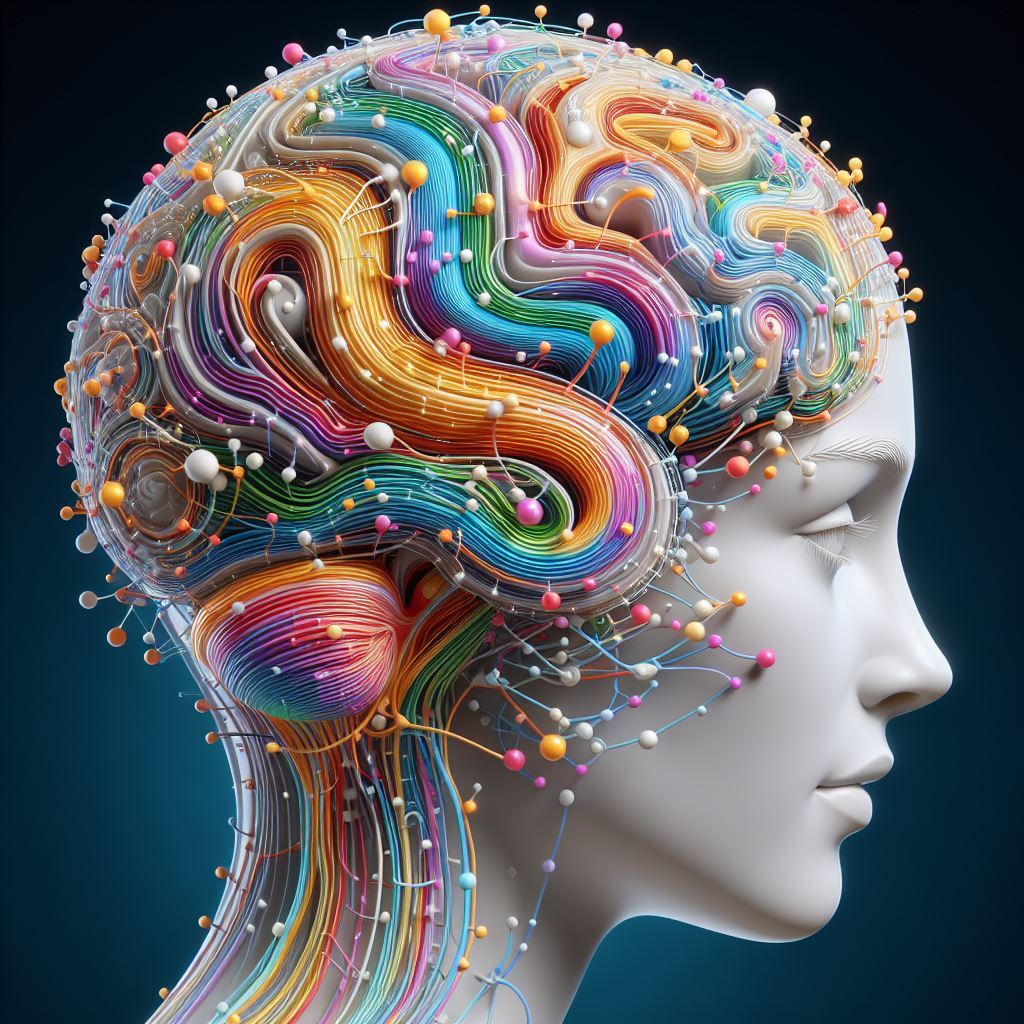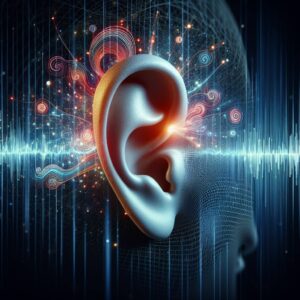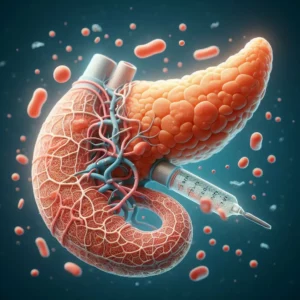Introduction
Erectile dysfunction (ED), the persistent inability to achieve or maintain an erection sufficient for sexual intercourse, can be a significant source of stress and frustration for men. While physical health conditions are often the first culprits considered, psychological factors, like Obsessive-Compulsive Disorder (OCD), can also play a crucial role. Understanding the interplay between OCD and ED empowers men to seek effective treatment and reclaim a fulfilling sexual life.
Unveiling OCD: The Grip of Intrusive Thoughts and Compulsions
Obsessive-Compulsive Disorder is a mental health condition characterized by recurrent and unwanted thoughts (obsessions) and repetitive behaviors (compulsions) that a person feels driven to perform. These obsessions can trigger significant anxiety, which the compulsions are aimed at reducing, even if only temporarily.
OCD can manifest in a variety of themes, with some individuals experiencing intrusive thoughts related to cleanliness, order, or harm. However, a significant portion of the population struggles with relationship OCD, which focuses on obsessive doubts and anxieties concerning love, intimacy, and sexual performance.
This variant of OCD can manifest in several ways that directly impact sexual function:
- Fear of contamination: Intrusive thoughts related to the transmission of germs or diseases through sexual contact can lead to avoidance of intimacy.
- Performance anxiety: The fear of not performing adequately or failing to satisfy a partner can trigger significant anxiety, hindering arousal and erection.
- Excessive reassurance seeking: A person with OCD might constantly seek reassurance about their partner’s attraction or their own sexual abilities, leading to strained communication and decreased spontaneity.
- Compulsive mental rituals: Engaging in mental rituals like counting or praying excessively before sex to ward off negative consequences can disrupt the natural flow of sexual intimacy.
The Impact of OCD on Erectile Dysfunction
The anxieties and compulsions associated with OCD can significantly disrupt the delicate physiological processes needed for an erection. Here’s how:
- Stress and Anxiety: Chronic stress and intrusive thoughts associated with OCD can trigger the body’s fight-or-flight response, diverting blood flow away from the genitals and making it difficult to achieve an erection.
- Disrupted Arousal: The preoccupation with intrusive thoughts and the need to perform compulsions can hinder the brain’s ability to focus on sexual cues and feelings of arousal.
- Low Self-Esteem: Repeated experiences of sexual difficulties can lead to feelings of inadequacy and low self-esteem, further worsening performance anxiety and erectile dysfunction.
However, it’s important to note that not everyone with OCD experiences ED. The severity of OCD symptoms and the specific themes of the obsessions will determine the extent of the impact on sexual function.
Breaking the Cycle: Treatment Options for OCD and ED
The good news is that both OCD and ED are highly treatable conditions. By addressing both conditions simultaneously, men can achieve significant improvements in their sexual health and overall well-being. Here are some effective treatment options:
1. Cognitive Behavioral Therapy (CBT): This evidence-based therapy helps individuals identify and challenge their negative thought patterns and compulsive behaviors associated with OCD. CBT for OCD can significantly reduce anxiety and improve sexual confidence.
2. Exposure and Response Prevention (ERP): This therapy technique involves gradually exposing individuals to situations that trigger their obsessions and anxieties while preventing them from engaging in compulsions. This helps them develop coping mechanisms for managing their anxieties without resorting to rituals.
3. Medication: Selective serotonin reuptake inhibitors (SSRIs) are commonly prescribed medications for OCD. These medications can help regulate serotonin levels in the brain, reducing anxiety and improving overall mood, which can indirectly benefit sexual function. However, it is important to note that some SSRIs can have side effects like decreased libido or delayed ejaculation. Men experiencing such side effects should talk to their doctor about alternative medication options.
4. Sex Therapy: Sex therapy can be immensely helpful for couples struggling with OCD and ED. It can provide a safe space to address concerns, improve communication, and explore strategies for enhancing sexual intimacy and overall satisfaction.
5. Lifestyle Changes: Maintaining a healthy lifestyle with regular exercise, adequate sleep, and a balanced diet can significantly improve overall physical and mental health, indirectly impacting sexual function.
Combining these approaches can be highly effective in managing OCD, reducing anxiety, and improving erectile function.
Reclaiming Intimacy: Moving Forward
If you’re struggling with OCD and ED, it’s crucial to seek professional help. A qualified therapist or psychiatrist can develop a personalized treatment plan to address both conditions. Remember, you’re not alone. Millions of men experience OCD and ED, and effective treatment options are available. With the right support, you can overcome these challenges and enjoy a fulfilling sexual life.
Here are some additional resources that you may find helpful:
- International OCD Foundation (IOCDF): https://iocdf.org/ – The IOCDF is a leading organization dedicated to providing OCD and related disorders information, support groups, and resources for individuals and families.
- Anxiety and Depression Association of America (ADAA): https://adaa.org/ – The ADAA offers information and treatment resources for a variety of mental health conditions, including OCD and anxiety disorders.
- The Jed Foundation: https://jedfoundation.org/ – The Jed Foundation focuses specifically on mental health resources and support for teens and young adults, including information on OCD and sexual health.
- National Alliance on Mental Illness (NAMI): https://www.nami.org/Home – NAMI is a grassroots mental health organization offering support groups, educational resources, and advocacy for individuals and families living with mental illness.
Remember, seeking help is a sign of strength, not weakness. Taking the first step towards getting professional support can empower you to manage your OCD and ED, improve your sexual health, and reclaim a fulfilling life.
Beyond Treatment: Practical Tips for Managing OCD and ED
While treatment is crucial, there are also practical steps you can take to manage OCD and ED and enhance your sexual well-being:
- Open Communication with Your Partner: Honest and open communication with your partner is vital. Talking about your anxieties and concerns related to OCD and ED can help alleviate some of the pressure and allow your partner to be supportive. Discuss strategies that might be helpful, such as taking breaks during sex or focusing on non-penetrative forms of intimacy.
- Focus on Foreplay and Sensuality: Shift your focus away from achieving an erection and prioritize building intimacy and arousal through foreplay. Explore different forms of touch, communication, and relaxation techniques to create a more sensual and enjoyable experience for both partners.
- Manage Stress: Chronic stress can exacerbate both OCD symptoms and ED. Practice relaxation techniques like mindfulness meditation, deep breathing exercises, or yoga to manage stress levels and promote overall well-being.
- Maintain a Healthy Lifestyle: A healthy lifestyle with regular exercise, adequate sleep, and a balanced diet can improve blood flow, reduce stress hormones, and indirectly benefit sexual function. Aim for at least 30 minutes of moderate-intensity exercise most days of the week. Prioritize getting enough sleep (7-8 hours per night) and avoid excessive alcohol and tobacco use, as these can worsen ED symptoms.
- Realistic Expectations: Don’t expect immediate results or perfect performance. Focus on gradual improvement and celebrate small victories. Remember, a fulfilling sexual experience encompasses more than just an erection.
Relationship OCD and Sexual Satisfaction
For individuals struggling with relationship OCD specifically in the context of sexual performance, here are some additional tips:
- Challenge Reassurance Seeking: The constant need for reassurance from your partner about their attraction or your sexual abilities can become a burden. Challenge yourself to resist this urge and trust your partner’s words and actions.
- Focus on the Present Moment: Intrusive thoughts often focus on “what ifs” or worst-case scenarios. Practice mindfulness techniques to stay present in the moment and appreciate the experience of intimacy with your partner.
- Seek Support Groups: Connecting with others who understand the challenges of OCD and ED can be incredibly empowering. Support groups can provide a safe space to share experiences, learn from others, and reduce feelings of isolation.
Remember, overcoming OCD and ED is a journey, not a destination. With dedication to treatment, self-care practices, and open communication with your partner, you can achieve significant improvements in your sexual health and overall well-being.
Conclusion
Obsessive-Compulsive Disorder and Erectile Dysfunction can create a significant hurdle in experiencing a fulfilling sexual life. However, understanding the connection between these conditions and seeking professional help can open the door to significant improvement. By addressing both the underlying anxieties of OCD and the physical aspects of ED, men can reclaim confidence and rediscover the joy of intimacy.




